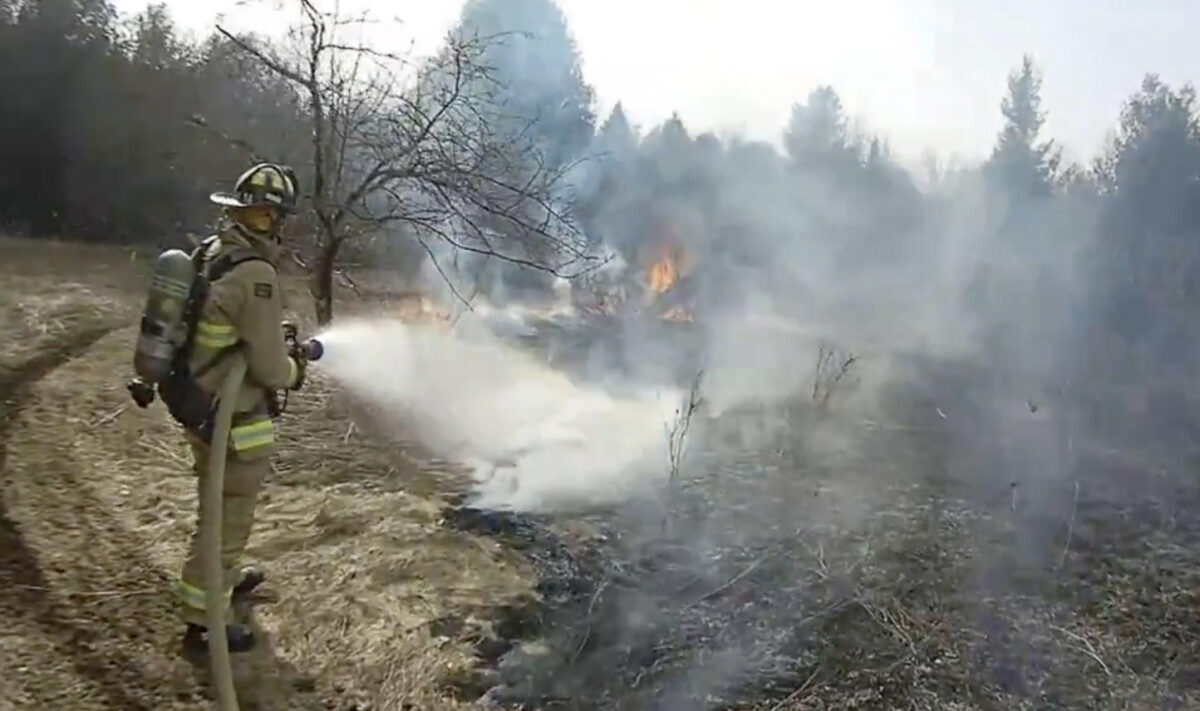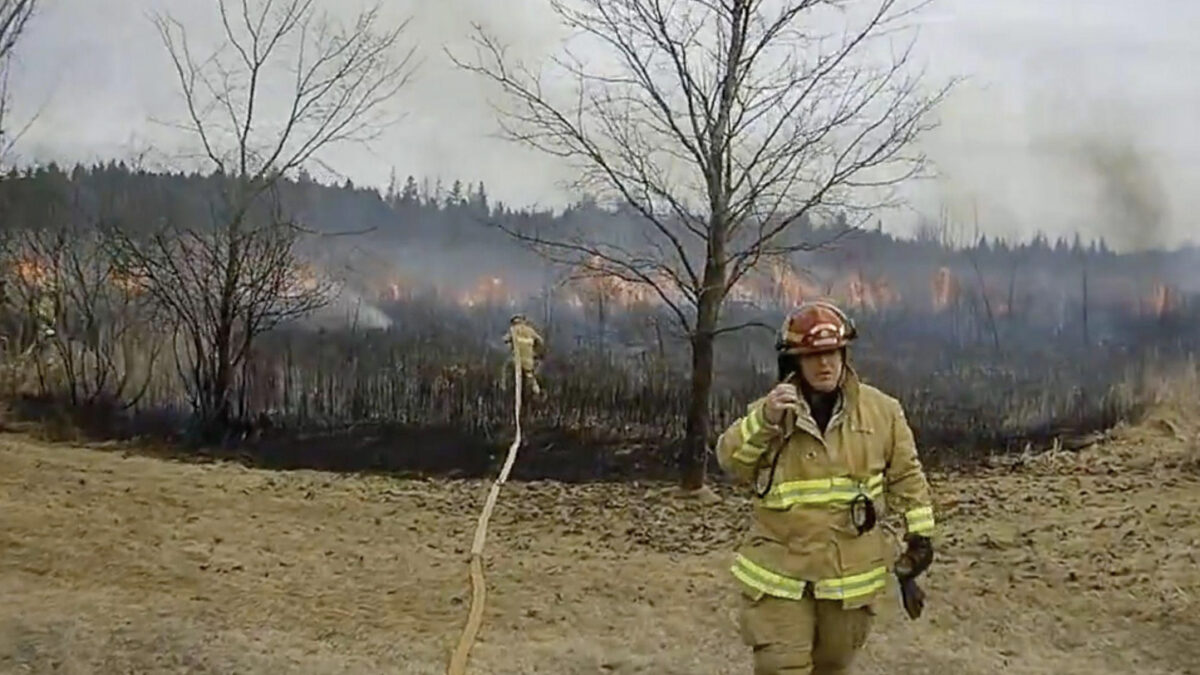Ottawa may be on the cusp of an early April snowstorm, but a series of brush fires across the region that forced firefighters to douse burning vegetation in recent weeks led the Ottawa Fire Services to impose an open-air fire ban on March 24.
The burn ban limits permit holders from having campfires, brush fires or open-air burns that could lead to the wilderness catching fire.
“We always put in a burn ban on April 1,” OFS public information officer Nick DeFazio told Capital Current soon after the ban was announced. “But we’re much earlier this year because we didn’t get much snow this winter. Normally right now we’d be dealing with floods, but we’re in an early season for brush fires.”
DeFazio said the ban was moved up in an attempt to combat the alarming number of fires seen in the Ottawa area.
He said this spring, OFS has responded frequently to people having fires to burn refuse even though they know they aren’t supposed to. DeFazio also expressed concern over residents tossing lit cigarettes out the window, or pouring ash out in fields.
A lot of these fires are 100-per-cent preventable, he noted.
‘Normally right now we’d be dealing with floods, but we’re in an early season for brush fires.’
— Nick DeFazio, public information officer, Ottawa Fire Services
The fires have largely been in rural areas of Ottawa. The OFS noted that one fire on Corkery Road in the rural west-end of Ottawa was beyond the city’s water network so no hydrants were present. In that case, firefighters used tanker trucks to shuttle in water from a nearby source.
The drier spring has caused concern for Dr. Chris Burn, a Carleton University geography professor, who pointed out that this follows a wider trend of more rain instead of snow, and warmer temperatures, during Ottawa winters.
Temperatures in Ottawa on average in March floated between -2C and 7C. The city felt bursts of warmth through February and March. Ottawa typically averages around 75 mm of rain and snowfall, but this year the region saw just 46 mm, according to Weather Spark.
Burn said these rising temperatures and drier climate shouldn’t be a surprise to anyone. We’ve seen global temperatures trending upwards for 55 years, said Burn.
Last year, an early push of warm air from the south reached Kingston, just a two-hour drive from the capital. But this year, the warm air reached Ottawa and even well north of the city, causing the region to experience a milder, less snowy winter than in years past.
This is cause for concern, said Burn.
The Rideau Canal, Ottawa’s skateway in the wintertime, failed to open in 2023 for the first time ever, and was only open for a very short time this year — just one example of the recent warming trend in Eastern Ontario.
“We didn’t get the canal to work last winter — it was just too bad, but don’t worry (they said), it’ll be fine next year . . . Well, it wasn’t.”
In a June 2022 study by the National Capital Commission titled “Climate Change Vulnerability and Risk Assessment,” the federal agency found that by 2050, Ottawa should expect to experience eight per cent more annual precipitation, and the annual temperature average will rise by 3.2C. Also, winter will be shortened by five weeks — and the warming will make for “favourable” conditions for fires.

“Instead of coming out of the atmosphere as snow and piling up on the ground, there’s been quite a bit of rain. The trouble with rain is that it runs away, it doesn’t stick around on the ground’s surface,” said Burn.
The weather in April and May could determine Ottawa’s path forward for fire management, but Burn said it’s hard to predict where the city could be headed.
“If we don’t get a lot of rain and the ground stays very dry, then we enter the danger zone. That’s what happened in 2016 in Fort McMurray.” A wildfire that year in the Alberta city devastated the community, forcing 88,000 people from their homes and destroying more than 2,000 homes and other buildings.
William van Geest, program coordinator for Ecology Ottawa, said Ottawa needs to set an example for mitigation of climate risks.
‘The issue of dryness extends beyond fires and I think there’s a significant concern for the water table and agriculture.’
William van Geest, program coordinator, Ecology Ottawa
“We have a huge obligation as the capital of one of the world’s wealthiest nations to do our part, because we have a disproportionate role in the cause of climate change,” he said.
About 80 per cent of Ottawa is rural according to Ecology Ottawa, and this means many residents in those areas depend on predictable weather to create good conditions on their farms.
“The issue of dryness extends beyond fires and I think there’s a significant concern for the water table and agriculture,” said van Geest.
Fighting climate change is a great investment, he added.
Wildfires can be caused by humans, or they can occur naturally through lightning strikes. Alberta’s Forest and Parks Minister Todd Llewellyn recently urged residents in that province to follow fire bans because, he said, “more than 60 per cent” of fires were human-caused. OFS is repeating that kind of message, saying there will be “zero-tolerance enforcement” of rules limiting fires in Ottawa.
DiFazio said that for those wondering what can and can’t be done during this time, “anything that emits embers, you can’t use.”
Propane and charcoal BBQs are fine to use, but wood-fed smokers aren’t. Campfires or bonfires are also prohibited.




